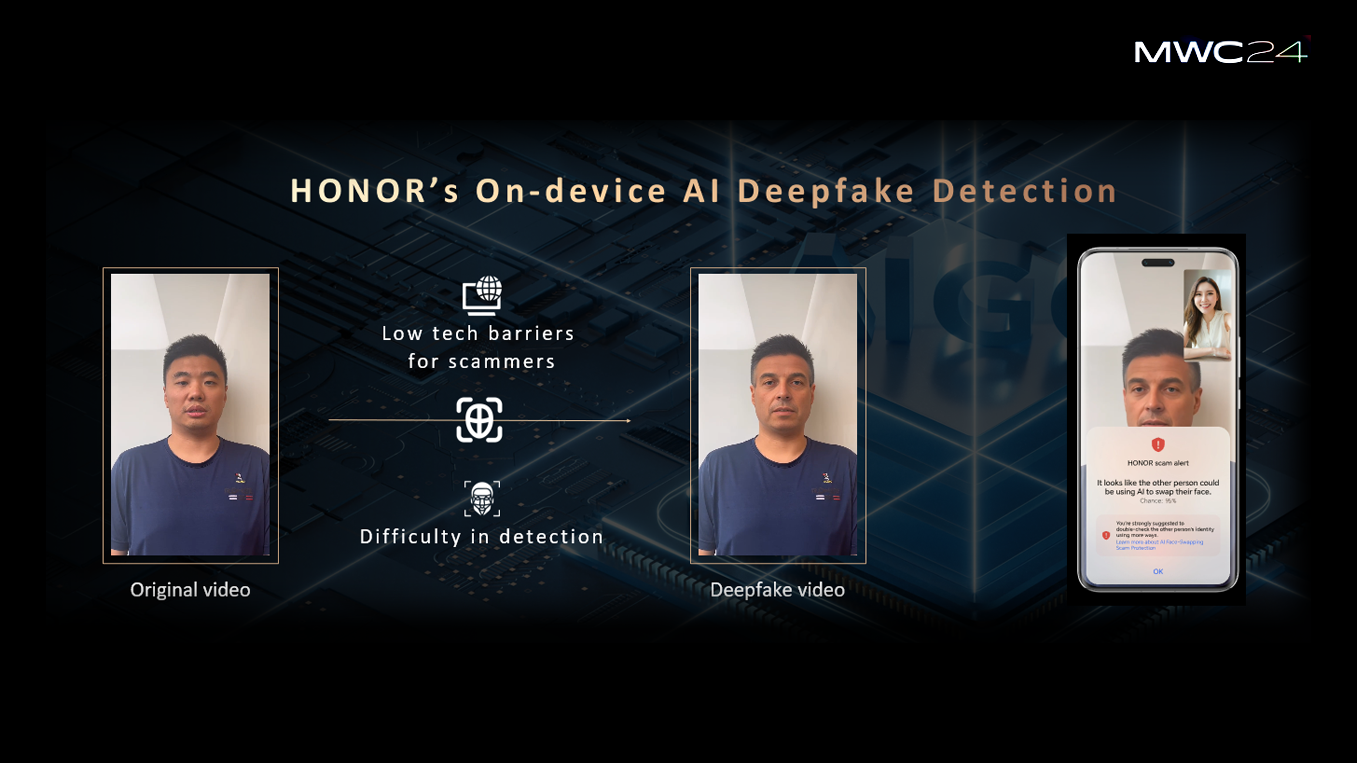Debuted at MWC 2024, the latest HONOR features leverage hardware-level AI to relieve myopia and circumvent scams
Global technology brand HONOR revealed two industry-leading on-device AI innovations created to empower individuals and introduce a new level of user safety. During its keynote at MWC Shanghai 2024, titled “The Human-AI Synergy: Intelligent Devices Will Empower People Better,” HONOR showcased its latest advancements in human-centric AI, AI Defocus Eye Protection and AI Deepfake Detection. During the keynote session, the brand also reiterated its focus on human-centric on-device AI and its belief in the potential for AI-enabled hardware to empower users by delivering tailored services while protecting user privacy.
Evolving Eye Protection Technology from Prevention to Relief
Introducing the latest advancements in eye-protection technology, HONOR launched AI Defocus Eye Protection at MWC Shanghai. Noting the global increase in cases of nearsightedness caused by long-term screen usage, this technology leverages AI to simulate defocus glasses on the smart device’s display.
Wearing defocus glasses is proven to be conducive to eye health as they intentionally induce controlled defocus in the user’s peripheral visual field to help maintain clear central vision. This effect creates an altered visual perception that slows down the eye elongation process, which leads to nearsightedness. Taking eye protection from prevention to creating technology that can lead to relief for consumers, HONOR’s AI Defocus Eye Protection has been shown to decrease users’ transient myopia by 13 degrees on average after reading for 25 minutes, with some users experiencing a maximum reduction of 75 degrees.
Mitigating Fraud with AI Deepfake Detection
Circumventing the risks presented by cloud-based “deepfake” AI technology, HONOR has introduced AI Deepfake Detection. To help prevent fraud and detect digitally manipulated content, AI Deepfake Detection examines frame-by-frame information such as eye contact, lighting, image clarity, and video playback to identify flaws that are imperceptible to the human eyes.
Additionally, the AI Deepfake Detection has been trained through a large dataset of videos and images related to online scams, enabling the AI to perform identification, screening, and comparison within three seconds. If synthetic or altered content is detected by the feature, a risk warning is immediately issued to the user, deterring them from continued engagement with the potential scammers for their safety.





